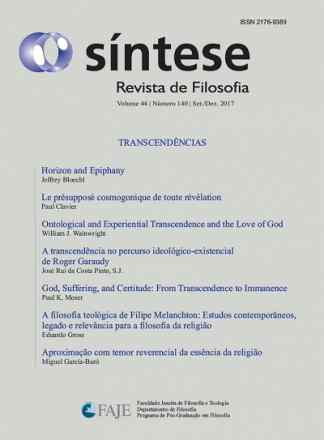LINGUAGEM E SOCIALIDADE EM EMMANUEL LEVINAS
Síntese
LINGUAGEM E SOCIALIDADE EM EMMANUEL LEVINAS
Autor Correspondente: Prof. Dr. Ozanan Vicente Carrara | [email protected]
Palavras-chave: Ontologia, Ética, Socialidade.
Resumos Cadastrados
Resumo Português:
Levinas, em seu esforço de romper com a linguagem ontológica, busca uma linguagem respeitadora da alteridade de outrem. A linguagem ética se apresentara como essa linguagem capaz de manter a pluralidade do Mesmo e do Outro sem que um seja absorvido pelo outro. Alias, a própria estrutura da linguagem supõe a alteridade já que só se pode falar a um interlocutor. Destarte, queremos mostrar, neste artigo, como Levinas compreende a linguagem e como ela ocupa um lugar central em sua filosofia, devendo ela preservar a estrutura plural do Mesmo e do Outro, sem se totalizarem numa linguagem universalizante. Ao respeitar a alteridade, a linguagem ética instala a comunicação e a socialidade. Abordaremos também os problemas levantados por Derrida a respeito da linguagem, em Violence et Métaphysique, procurando mostrar como Levinas os responde em Autrement qu’être. Esta ultima obra, se esforça em substituir a linguagem ontológica por uma linguagem ética, criando todo um novo vocabulário ético que lhe permite descrever a subjetividade como Outro no Mesmo.
Resumo Inglês:
In his effort to break up with the ontological language, Levinas searches for a language which respects the alterity of the Other. The ethical language presents itself as the one capable of maintaining the plurality of the Same and of the Other, without the former being absorbed by the latter. Actually, the structure of language itself implies alterity, as one can only speak to an interlocutor. This article intends to show how Levinas comprehends language and how it occupies a central place in his philosophy, since the plural structure of the Same and of the Other are preserved without being totalized in the universalizing language. By respecting alterity, the ethical language installs communication and sociality. The objections Derrida addressed to Levinas in Violence et Métaphysique will also be discussed with the intent of showing how Levinas answered them in Autrement qu´etre. In this book, the author strives to substitute the ontological language with an ethical language, creating thus a new ethical vocabulary which allows him to describe subjectivity as the Other in the Same.

